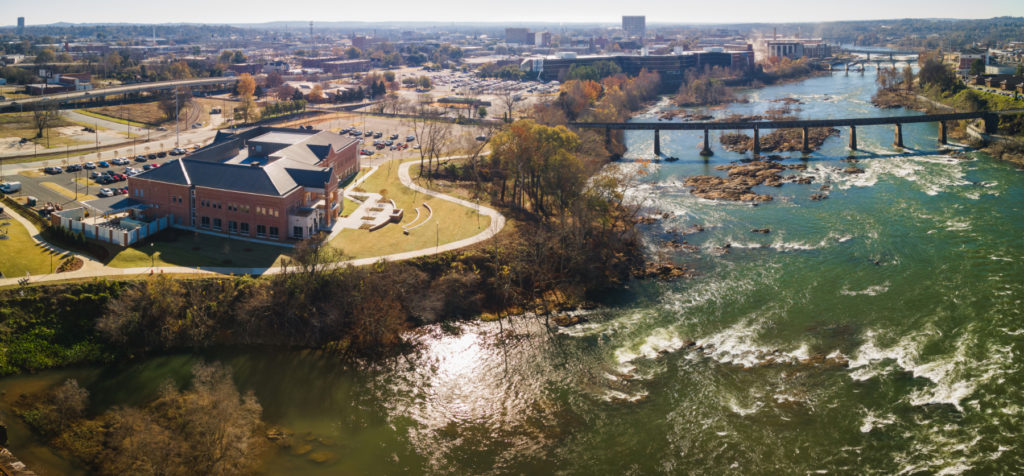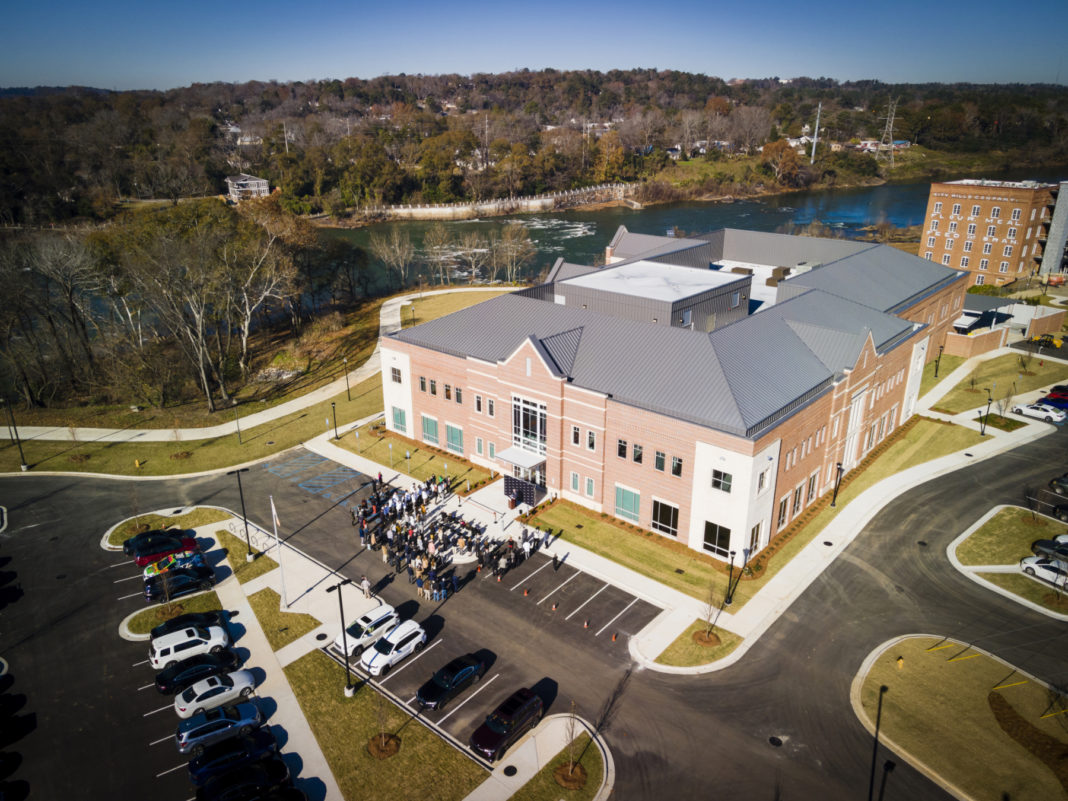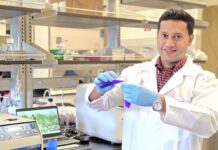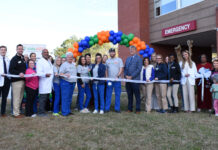On the banks of the Chattahoochee River, America’s most picturesque medical school campus opened its doors in January to welcome more than 70 first-, third- and fourth-year medical students.
Mercer University School of Medicine was founded in 1982 as a public-private partnership between the state and the institution to provide physicians for rural and underserved areas of Georgia. There is perhaps no greater example of the School’s successful pursuit of that mission than in Columbus.
The opening of the Columbus campus — more than a dozen years in the making — was the culmination of a community-driven effort to improve the health status of its citizens.
Public-private partnership at its best
In 2010, four Columbus community leaders — past and present Mercer Trustees Tom Black, Jimmy Elder and Pete Robinson and State Rep. Richard Smith — met with Mercer President William D. Underwood and other University administrators to propose the idea of locating a medical school campus in Georgia’s second-largest city.
Smith, a long-time state representative serving District 134 and current chair of the House Rules Committee, said Underwood set forth three criteria needed to establish the new campus.
“No. 1, we need community support. No. 2, we need state support, and No. 3, we’ll be there to help you,” Smith recalled Underwood saying.
It wasn’t long before those criteria were met. Two years later, in 2012, Mercer announced plans to partner with St. Francis Hospital and Midtown Medical Center (now Piedmont Columbus Regional Hospital) to establish a third medical school location that would provide clinical rotations for third- and fourth-year M.D. students in Columbus.
“Primary care is desperately needed in our state to support local hospitals and local services. If you live in a county where you have to drive 30 or 40 miles for care, for many people that’s impossible”
Jean Sumner, M.D.
Dean of Mercer University School of Medicine
Several years later, in 2019, Mercer announced it would expand the Columbus clinical site to a full four-year campus to increase enrollment to 240 M.D. students, equaling the size of campuses in Macon and Savannah.
Community support was the determining factor behind this decision. Not one, but two local companies — W.C. Bradley Co. and TSYS, a Global Payments company — offered up sites for the new campus, and local donors raised almost $14 million, which was matched by the University and backed by operational funding from the state.
“If you want to see a community that takes pride in what it can accomplish through public-private partnership, you won’t find one better than Columbus,” Smith said.
The initial plan was to renovate an existing building on 11th Street in downtown Columbus that was to be given by the W.C. Bradley Co. But Mercer Trustee Brad Turner, a retired W.C. Bradley executive, became aware of the potential of a riverfront property in uptown Columbus owned by TSYS. Turner connected the University with Troy Woods, CEO of TSYS, and the company donated the property, allowing for construction of a free-built, 77,000-square-foot structure featuring classrooms, research facilities and office space, while also providing an iconic and highly attractive riverfront locale. The 11th Street facility served as temporary quarters for the medical school until the new riverfront campus was completed last December.
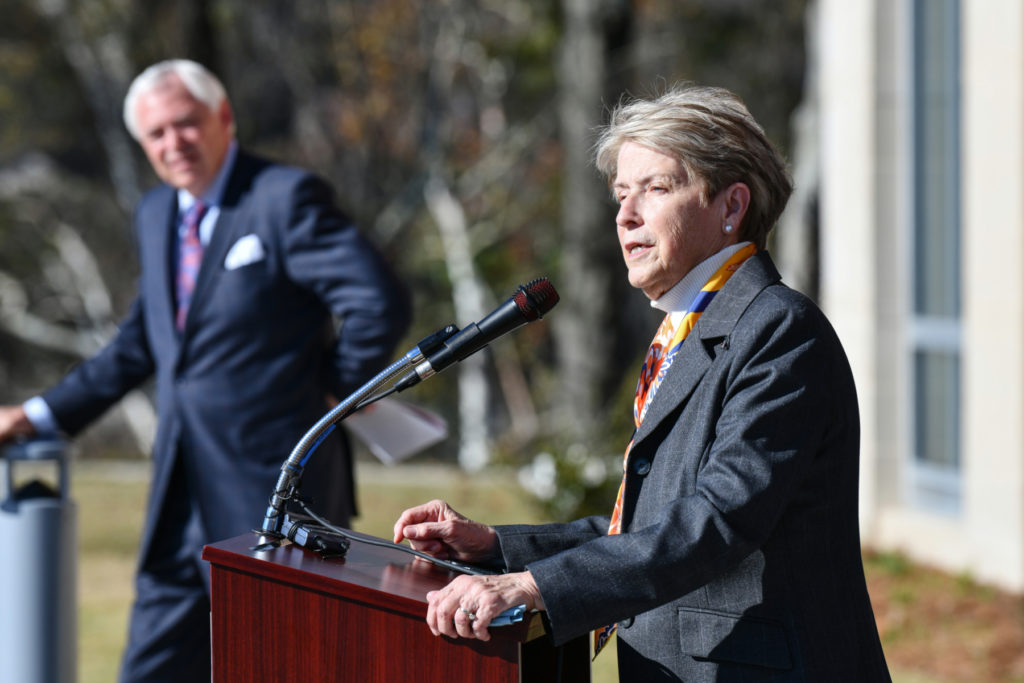
“We’ve found that Columbus has not been a difficult sell,” said Jean Sumner, M.D., dean of the School of Medicine. “It’s a respected community. It’s a growing community. It’s a community filled with young people and industry and opportunity. Faculty have been excited about coming to Columbus. We have in our facility state-of-the-art research labs that any biomedical scientist will tell you there are none better.”
As the Columbus campus scales up operations over the next few years, it will ultimately graduate 60 new physicians each year to go along with 120 new physicians combined coming out of Macon and Savannah. That’s 180 new doctors per year — from the state’s western border through the heart of Georgia to the eastern coastline — who are going into Georgia’s most rural and underserved areas to practice medicine.
Improving health outcomes
Southwest Georgia is the epicenter of the state’s health care crisis, containing more than half of the 40 counties identified as having the worst health outcomes statewide. The root of the crisis may be as simple to explain as it is challenging to solve — lack of access to primary care — but under the leadership of Dr. Sumner, Mercer is facing that challenge head-on.
During the first wave of the COVID-19 pandemic, Dr. Sumner said, Georgia had six counties in the top 20 nationwide in percentage of deaths from coronavirus.
“They were almost all counties with no primary care and very little access to care,” she said. “Primary care is desperately needed in our state to support local hospitals and local services. If you live in a county where you have to drive 30 or 40 miles for care, for many people that’s impossible. The pandemic really demonstrated the desperate state of west Georgia and southwest Georgia in terms of lack of access to care.”
In addition to the expansion of the Columbus campus, Mercer Medicine — the medical school’s multi-specialty physician practice — has opened five rural health clinics, three of which are in Clay, Harris and Sumter counties in southwest Georgia, with more on the way.
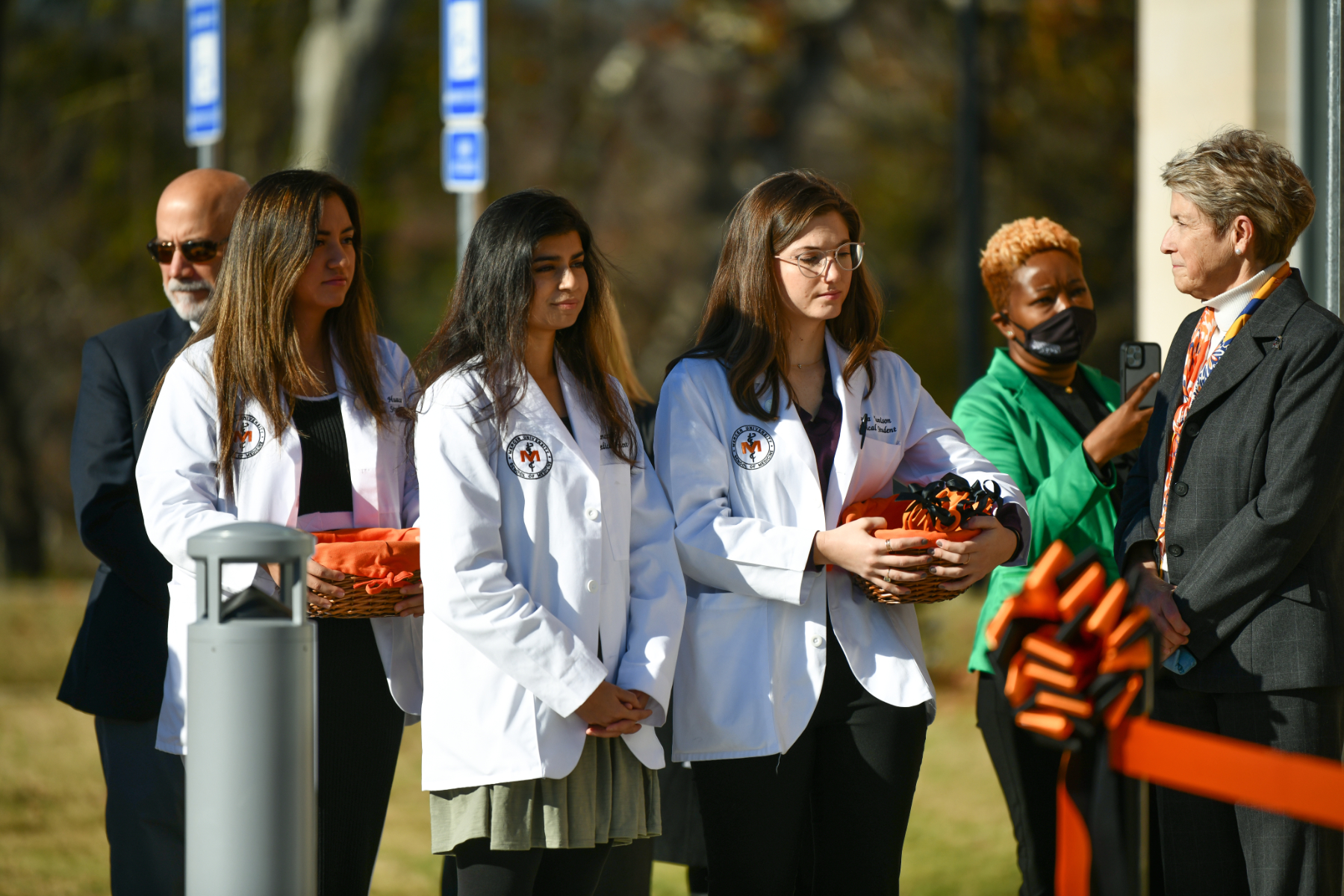
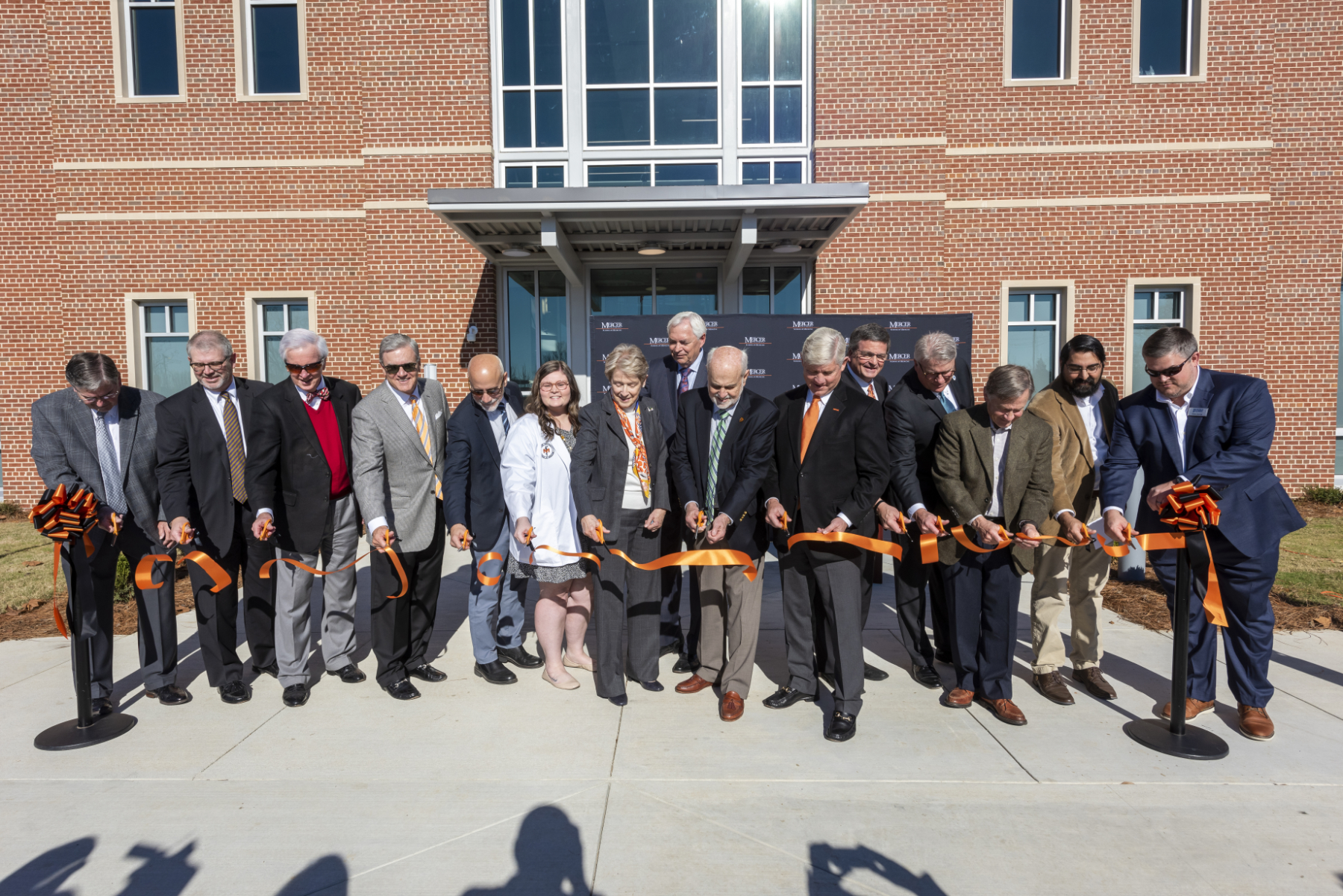
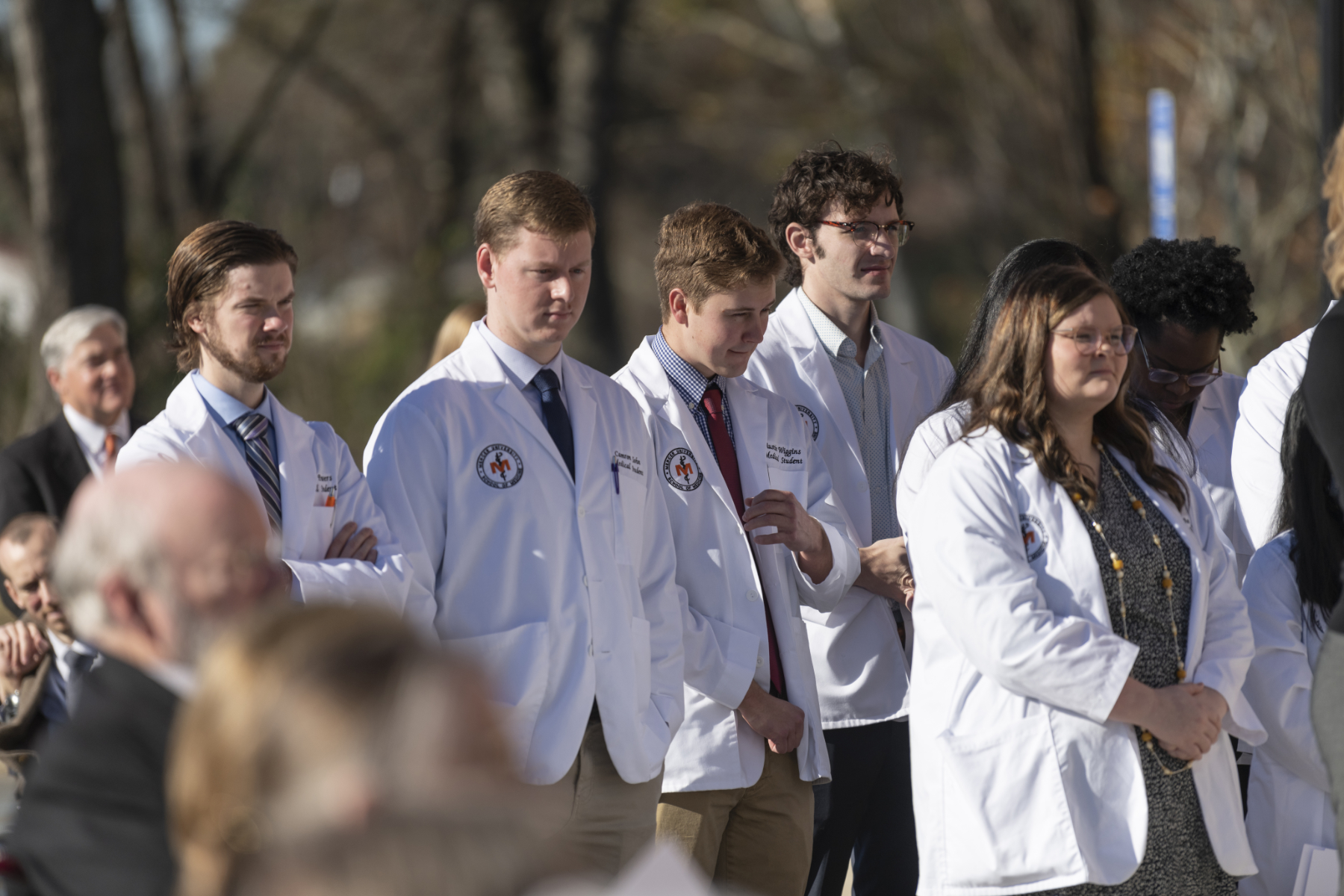
“We’re committed to being a partner with the community to bring outstanding quality care to those areas and help Columbus grow as a medical referral hub while bringing community-based services that are second-to-none to the small communities in west Georgia,” Dr. Sumner said.
Any improvement that Mercer can help to achieve in health outcomes will make an impact at every level of these communities, not just in hospitals and doctor’s offices.
“Chronic disease is devastating to an individual, but it also is very costly to communities as a whole in that it takes people out of productive life and work, and hinders the ability to create a workforce for industry,” Dr. Sumner said. “All this centers around quality, available primary care.”
Filling the void
Family physician Kristen Kettelhut, M.D., is a prime example of Mercer’s mission at work. She grew up in Peachtree City, a densely populated and affluent suburb in south metro Atlanta. She met her husband, OB-GYN Matt Kahrmann, M.D., in medical school at Mercer.
Dr. Kahrmann is originally from rural McRae, the county seat of Telfair County in south central Georgia.
As the two neared completion of their first two medical education years in Macon, Senior Associate Dean of Admissions and Student Affairs Alice House, M.D., who oversaw the Columbus campus at the time, convinced them to consider relocating for their last two clinical years.
Hesitant at first, Dr. Kettlehut said, they visited Columbus and fell in love with the community.
“Right off the bat, we were viewed not just as medical students but as members of the community,” said Dr. Kettelhut. “We were asked our opinion about how to make the community a better place. I’ve never been in a town where that was actually something anyone asked me, so it was really rewarding to feel like you’re a part of the town, not just part of the medical school.”
Now, she and her husband “have never been happier” in a town where they have established a home and are playing a vital role in addressing the area’s physician shortage.
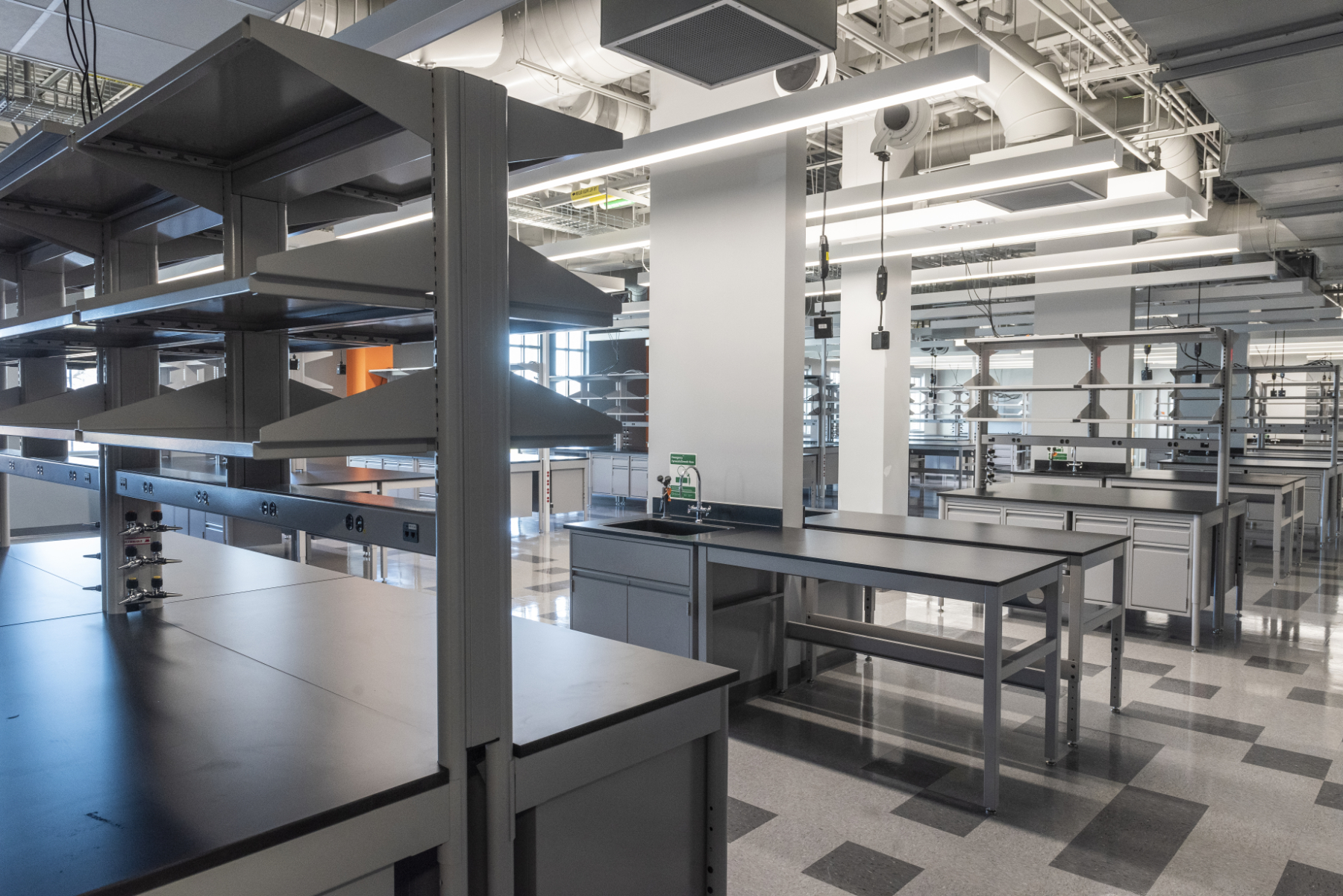
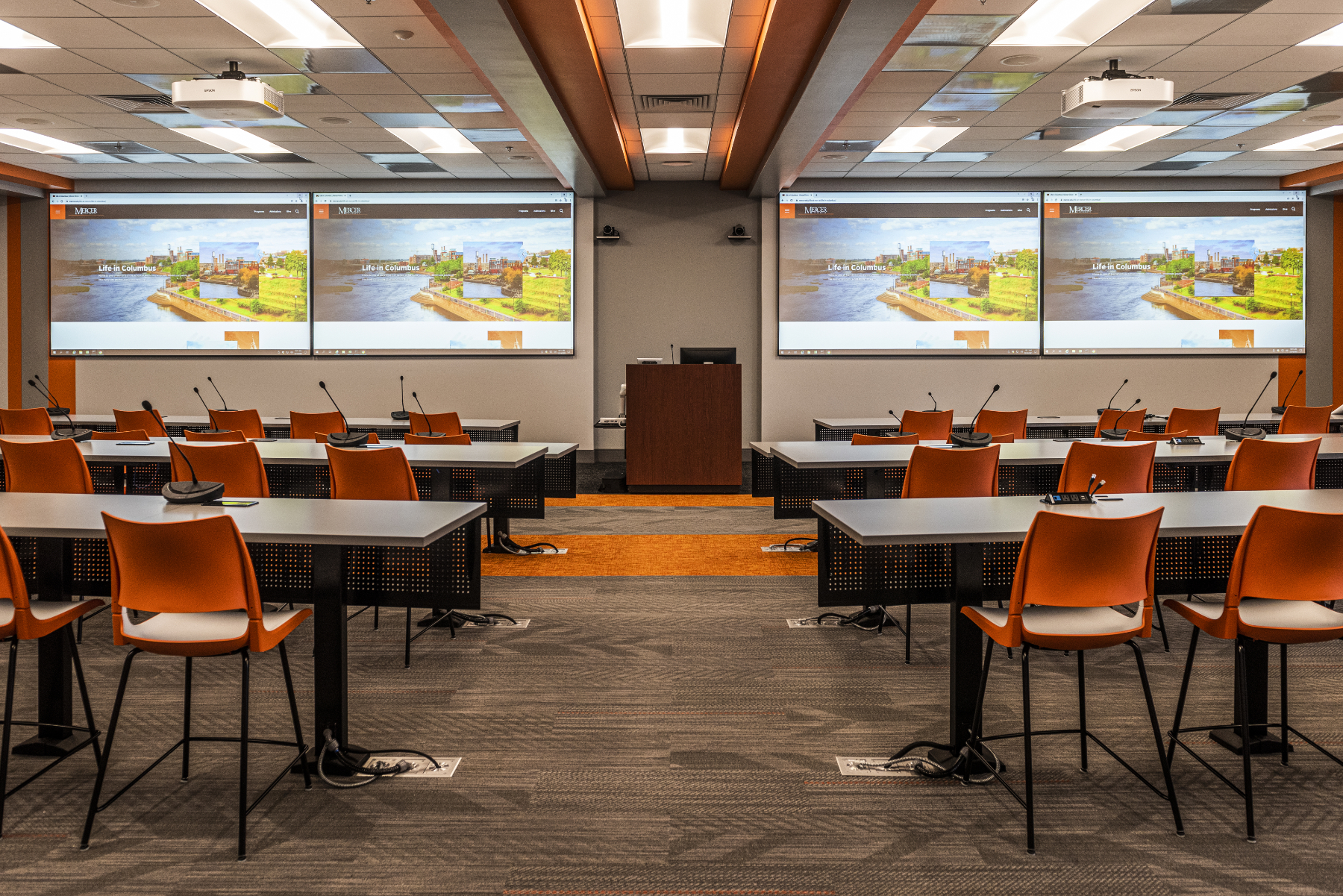
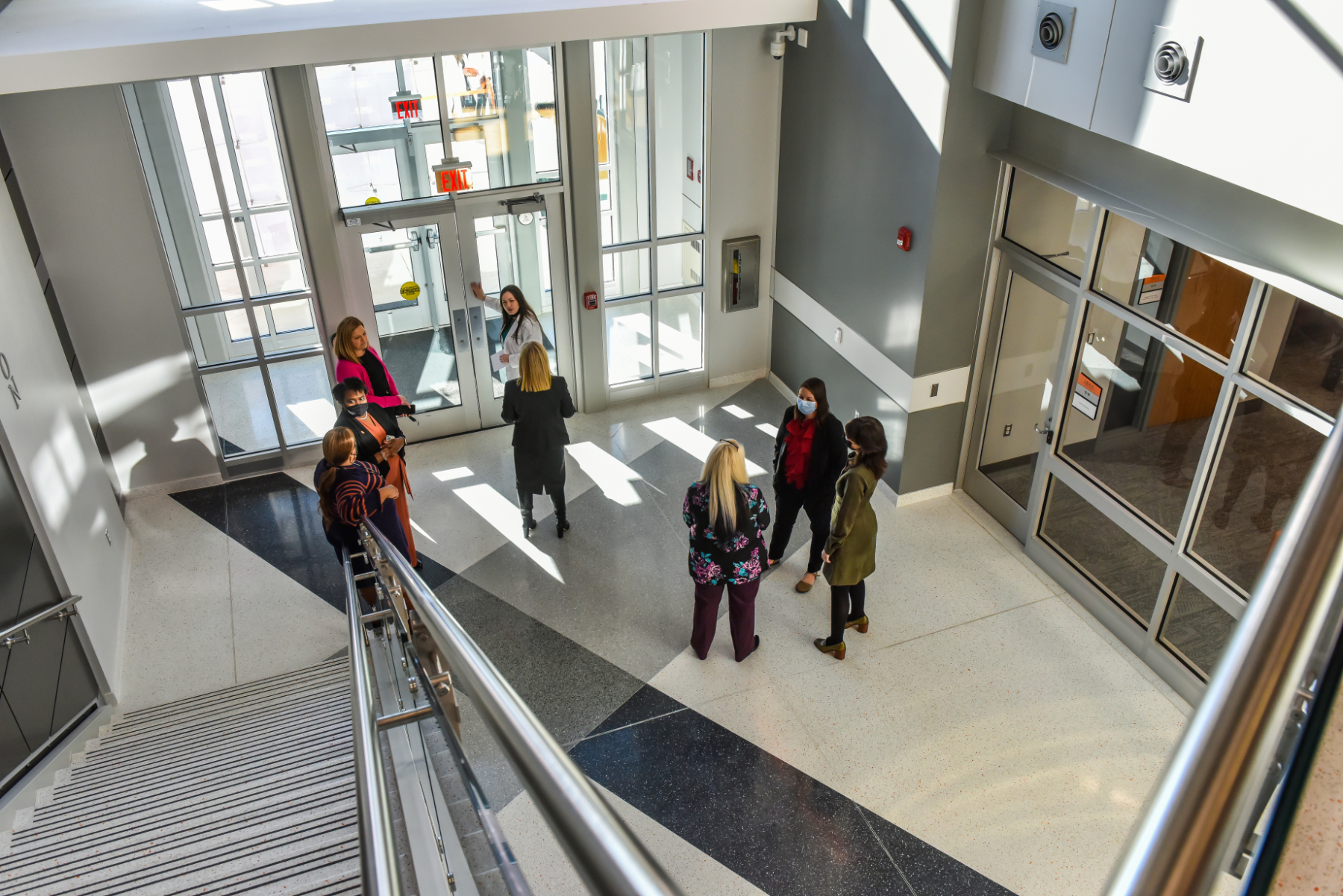
The terms “rural and underserved” in the School of Medicine’s mission apply to more of Georgia than one might imagine. While Columbus is the state’s second-largest city, Dr. Kettelhut recalled a recent figure she had seen indicating that the city had a deficit of 80 physicians needed to serve the number of potential patients in the area.
Smith also experienced this shortage firsthand when his primary care doctor retired last year. “There are a lot of physicians who are ready to retire, and we’ve got to help fill that void,” he said.
Dr. House, Dr. Kettelhut and Dr. Kahrmann are among around 30 Mercer-trained physicians who have practiced in Columbus in the four decades since the medical school’s founding. With the expansion of the campus, “that number will exponentially increase,” Dr. House said.
A transformative force
Not only will the Columbus campus produce more new doctors to fill these vacancies, the process of expansion has relocated veteran doctors to the area, including Senior Associate Dean Maurice Solis, M.D., who succeeded Dr. House.
“Dr. House did a great job. Her heart was with student affairs, and she returned to that role,” said Dr. Sumner. “Dr. Solis came in as a nationally known vascular surgeon and has continued his work in vascular surgery in Columbus while also being a tremendous asset to the University in developing physician relationships, relationships with hospitals, and also as a mentor and guide for students.”
Dr. Solis practiced vascular surgery in Springfield, Illinois, Macon and Valdosta and for more than 30 years before moving to Columbus in late 2020 to oversee the expansion. Coincidentally, he reconnected with one of his former partners who had also moved to the city, allowing Dr. Solis to practice one day per week in addition to his administrative duties.
As senior associate dean for the Columbus campus, he has spent the past year-and-a-half trying to integrate the expanded version of the School of Medicine into the community in order to maximize the benefits of being a medical school town.
The obvious health care-related benefits include the increase in physicians, but there are more. The development of graduate medical education programs “attracts academic physicians, attracts specialists and elevates the level of education and care,” he said.
“We’re committed to being a partner with the community to bring outstanding quality care to those areas and help Columbus grow as a medical referral hub while bringing community-based services that are second-to-none to the small communities in west Georgia.”
Jean Sumner, M.D.
Dean of Mercer University School of Medicine
Where previously Columbus only had a family medicine residency to go along with an orthopedic program at the Hughston Clinic, more specialties are on the horizon, including an internal medicine residency that will begin at St. Francis in July. Mercer can also help local hospitals recruit world-class physicians by offering academic appointments and opportunities for research and teaching. Dr. Solis is currently working with Piedmont Columbus Regional to assist in the expansion of its pediatric services line.
Then there are education-related benefits through partnerships with local institutions such as Columbus State University and Columbus Technical College to engage undergraduate students who may be interested in medical school in ways such as offering early admission programs and providing research opportunities for course credit.
Finally, there are research-related benefits that will come from the addition of several Ph.D.-level faculty whose primary role will be research, rather than teaching. They’ll make the most of the new facility’s second floor, where half of the space is dedicated to state-of-the-art research labs equipped with microscopes, flow cytometers, genetic analysis and PCR machines, and much more. Through partnerships with organizations like John B. Amos Cancer Center and IACT Health clinical research trials, Mercer’s researchers will have greater chances for “translational opportunities” to take discoveries from the lab to the clinic and advance medical care locally and beyond.
“We are hoping to leverage all three of these pillars on which a medical school functions — health care, education and research — in Columbus to really make Mercer a transformative force for the community,” Dr. Solis said.
